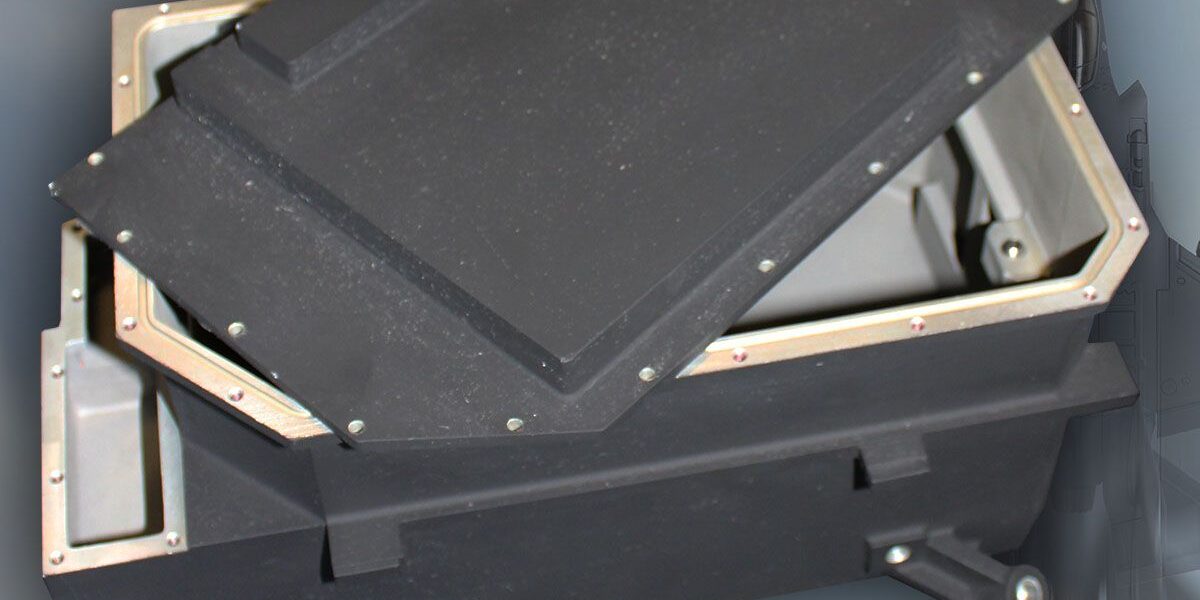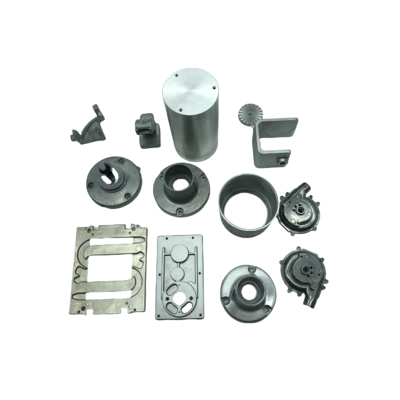The craftsmanship behind every Aluminum Foundry production process
Wiki Article
The Impact of Innovative Factory Solutions on Sustainable Production Practices
Innovative factory services play a vital duty ahead of time lasting manufacturing practices. By incorporating recycling technologies and energy-efficient procedures, these solutions considerably reduce environmental impact. Foundries can redeem important materials, consequently reducing dependancy on virgin sources. As automation and lean manufacturing concepts obtain grip, manufacturing efficiency is maximized. Nevertheless, the full degree of these developments and their effects for the future of producing remain to be explored.The Function of Advanced Recycling Technologies in Foundries
Advanced reusing innovations are changing the landscape of shops by boosting product recovery and reducing waste. These ingenious procedures allow factories to recover valuable metals and products from scrap, lessening dependence on virgin resources. By incorporating innovative sorting, shredding, and melting methods, factories can effectively remove usable products from discarded items, consequently advertising a circular economy.These modern technologies sustain the production of high-quality alloys and parts, guaranteeing that recycled materials fulfill rigorous sector criteria. Therefore, foundries are not only enhancing their material effectiveness but likewise reducing the ecological impact connected with conventional manufacturing approaches
This change in the direction of progressed reusing not only bolsters financial stability for foundries yet additionally aligns with global sustainability objectives. Eventually, the incorporation of these modern technologies represents a significant progression in the quest for sustainable production techniques within the foundry sector.
Energy Effectiveness: Lowering Consumption in Production Processes
Energy efficiency in making procedures is crucial for lasting operations. Strategies such as process optimization strategies, sustainable energy combination, and waste warmth healing play important functions in reducing energy consumption. By concentrating on these locations, producers can substantially decrease their environmental impact while improving efficiency.Refine Optimization Techniques
A substantial variety of producing facilities are significantly adopting procedure optimization strategies to enhance power effectiveness and reduce usage. These methods involve refining and examining production process, determining bottlenecks, and executing automation to enhance operations. By leveraging data analytics, producers can check power use in real-time, allowing proactive changes to lessen waste. Strategies such as Lean Manufacturing and 6 Sigma concentrate on removing inefficiencies and optimizing source appropriation. Additionally, progressed innovations like Internet of Things (IoT) sensing units supply understandings right into devices performance, assisting in predictive maintenance that avoids power loss. On the whole, these process optimization approaches not just contribute to lowered power usage however also foster a culture of continual improvement within manufacturing settings, straightening functional practices with sustainability goals.Renewable Resource Integration
Several production facilities are significantly incorporating renewable energy resources to enhance overall power performance and reduce dependence on traditional power grids. This change consists of the fostering of solar, wind, and biomass energy, which can considerably lower and lower functional prices carbon impacts. By making use of these lasting power resources, suppliers not only lessen their ecological impact yet also boost energy resilience. Furthermore, incorporating sustainable power systems usually includes innovative modern technologies such as power storage and clever grid options, which maximize energy usage and assist in real-time monitoring. This combination supports suppliers in accomplishing governing compliance and meeting sustainability objectives while promoting technology in production procedures. Ultimately, renewable power combination represents an essential change towards even more sustainable production techniques and lasting practicality.Waste Heat Healing
Incorporating renewable energy sources establishes the phase for additional improvements in energy effectiveness, particularly through the execution of waste warm recuperation systems. These systems catch excess thermal energy produced during making processes, which would certainly otherwise be lost to the setting. By repurposing this warm, foundries can substantially minimize their energy consumption, lower operational costs, and decrease their carbon impact. The recouped warmth can be utilized for various applications, such as heating, power generation, or preheating resources. Therefore, waste warm recuperation not just improves power performance however also contributes to a lasting manufacturing design. Ingenious shop solutions that prioritize this technology are leading the way for an eco responsible industrial landscape, aligning earnings with eco-friendly stewardship.Making Use Of Eco-Friendly Products in Foundry Workflow
As the demand for sustainable production methods expands, foundries are increasingly transforming to environmentally friendly products to enhance their operations. By incorporating sustainable choices, such as bio-based binders and recycled steels, shops can considerably decrease their ecological footprint. These materials frequently call for much less power for handling and can minimize harmful emissions throughout manufacturing.The fostering of environmentally friendly materials not only straightens with regulative standards yet additionally meets customer preferences for greener items. Shops are exploring ingenious alternatives, such as making use of organic additives that improve mold quality while continuing to be safe.
The shift to lasting materials promotes a round economy by advertising resource reuse and reducing waste. Furthermore, this adjustment can improve the total effectiveness of factory procedures, as green products typically display remarkable buildings, bring about improved item performance - click aluminum casting. Ultimately, the usage of environmentally friendly products stands for a crucial action towards sustainable production in the foundry market

Advancements in Waste Management and Reduction Techniques
The change in the direction of environmentally friendly materials in factory procedures leads the method for innovations in waste administration and reduction techniques. Innovative shop services are significantly taking on techniques that lessen waste generation and advertise recycling. Techniques such as closed-loop systems allow for the reuse of products, significantly lowering the quantity of waste generated during making processes. Furthermore, innovations in purification and separation innovations enable the efficient healing of important byproducts, which can be rehabilitated into the manufacturing cycle.The execution of real-time monitoring systems supplies data-driven understandings right into waste generation patterns, helping with notified decision-making to optimize resource use. Foundries are also checking out biowaste options, converting organic waste right into power or useful products, even more promoting sustainability. These advancements not only add to a circular economic situation yet additionally boost the total environmental efficiency of factory operations, highlighting the industry's commitment to decreasing its ecological footprint.
The Influence of Automation on Lasting Manufacturing
While lots of markets go for sustainability, automation arises as an important variable in enhancing sustainable production techniques within factories. By incorporating automated systems, shops can achieve better performance, decrease waste, and reduced power usage. Automated procedures enable for accurate control over manufacturing criteria, minimizing defects and rework, which consequently saves sources.Furthermore, automation facilitates the tracking of ecological impacts, enabling real-time adjustments that line up with sustainability objectives. aluminum casting. Advanced robotics and expert system can maximize product use, leading to considerable reductions in scrap and emissions
Additionally, automated modern technologies advertise much safer workplace by taking care of unsafe tasks, thus improving employee wellness while ensuring compliance with environmental regulations. On the whole, the fostering of automation within factories not only improves procedures but also plays a critical function in progressing lasting production techniques, adding to a much more accountable industrial landscape.
Instance Studies: Effective Implementation of Lasting Foundry Practices
Effective application of sustainable methods in shops can be illustrated via different study that highlight measurable results and ingenious strategies. One noteworthy example is a mid-sized factory that adopted a closed-loop water reusing system, lowering water usage by 40% and reducing wastewater generation. Additionally, this facility changed to making use of green mold and mildew materials, which not only improved product top quality yet also improved worker security.see here An additional substantial case involved a huge shop integrating eco-friendly power resources, such as solar panels, which counter 30% of its power requires. This initiative not only lowered functional prices yet likewise added to a considerable reduction in carbon exhausts.
A shop that applied lean manufacturing techniques reported a 25% rise in effectiveness, leading to less worldly waste and optimized manufacturing directory procedures. These cases jointly highlight the tangible advantages and sustainability developments achievable via innovative shop methods.
Frequently Asked Concerns
Just How Do Cutting-edge Shop Solutions Contribute to Overall Sustainability Objectives?
Ingenious shop solutions enhance total sustainability goals by maximizing resource usage, minimizing waste, and boosting energy performance. These developments contribute to decrease carbon footprints and promote ecologically responsible techniques within the manufacturing industry, sustaining broader sustainability initiatives.What Are the Economic Benefits of Taking On Sustainable Factory Practices?
Taking on sustainable foundry practices can reduce functional prices, improve source effectiveness, and improve competitiveness. Furthermore, these techniques can bring in eco-conscious consumers and capitalists, ultimately causing increased profitability and lasting economic feasibility for services.Exactly How Can Small Foundries Execute Sustainable Innovations Properly?
Tiny factories can carry out lasting developments efficiently by adopting energy-efficient technologies, enhancing resource use, training personnel on sustainable techniques, collaborating with distributors for eco-friendly materials, and participating in continuous renovation processes to decrease waste and exhausts.What Qualifications Exist for Lasting Factory Operations?

Exactly How Do Consumer Preferences Influence Lasting Manufacturing in Foundries?
Consumer choices substantially affect sustainable production in foundries by driving need for eco-friendly items. As consumers prioritize sustainability, foundries adapt their techniques, including greener materials and innovations to satisfy market assumptions and enhance their competitive advantage.By repurposing this warm, foundries can considerably minimize their power consumption, reduced operational prices, and decrease their carbon footprint. Factories are also discovering biowaste options, transforming organic waste into power or usable materials, even more advertising sustainability. By integrating automated systems, foundries can achieve greater effectiveness, reduce waste, and reduced energy usage. An additional substantial situation included a huge factory incorporating sustainable energy resources, such as solar panels, which offset 30% of its energy needs. Innovative shop services improve total sustainability goals by enhancing source use, lowering waste, and boosting power performance.
Report this wiki page